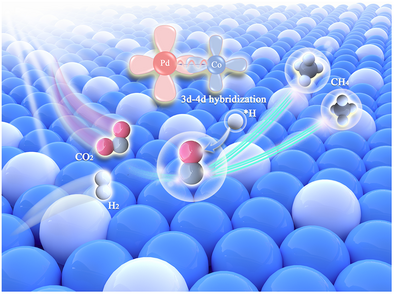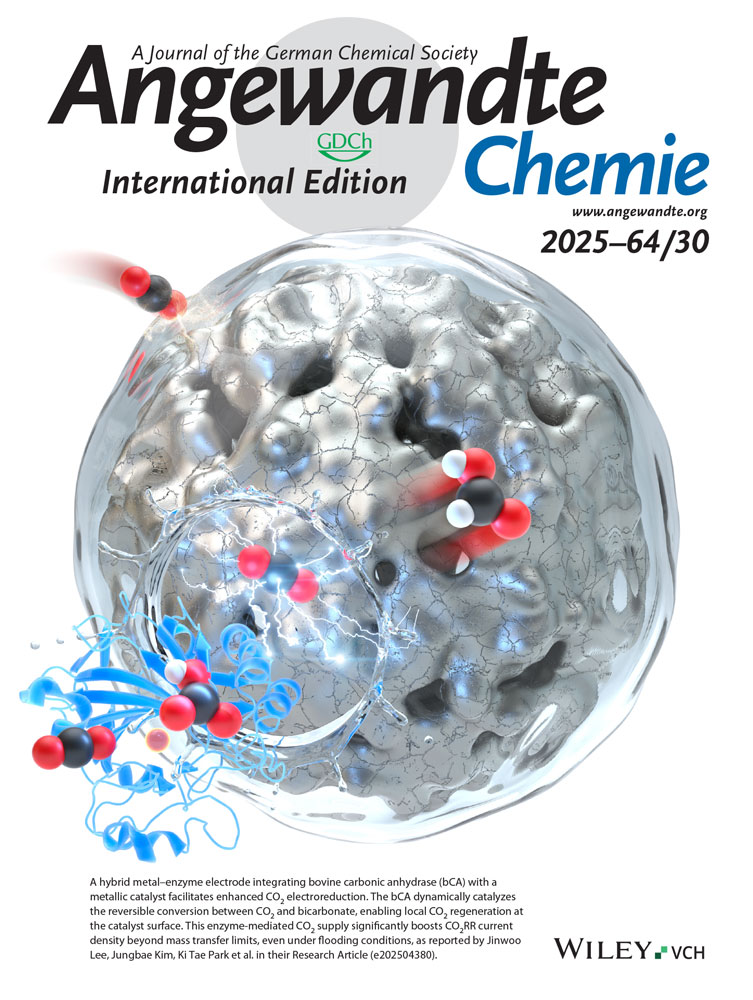Establishing 3d–4d Orbital Hybridization for Efficient Photothermal Catalytic CO2 Hydrogenation
Graphical Abstract
Abstract
Photothermal catalytic CO2 conversion offers a promising way to address the energy and environmental issues; however, the development of self-supporting catalysts with high activity and selectivity remains a great challenge. Here, we report the decoration of PdCo alloy on self-supporting carbon cloth with N-doped carbon arrays (PdCo-NC/CC) for efficient photothermal catalytic methanation. In situ spectra and density function theoretical (DFT) calculations demonstrate that the 3d-4d hybridization between Co and Pd enables an increase in the energy level of the dz2-5σ and dyz-2π* states in the CO/PdCo alloy, thus enhancing the binding strength of the *CO intermediate and accelerating the CO hydrogenation. Specifically, the self-supporting substrate provides highly dispersed metal sites for CO2 methanation while serving as a photo-to-heat converter to improve the temperature of the reaction system. As a result, PdCo-NC/CC exhibits unprecedented photothermal performance toward CO2 methanation, delivering a CH4 generation rate as high as 15.23 mol gmetal−1 h−1 and a selectivity of 100% in batch reaction under the irradiation of Xenon lamp without any external thermal source. Moreover, the continuous flow photothermal reaction can be smoothly proceeded over 100 h, demonstrating the high stability of PdCo-NC/CC in CO2 hydrogenation.
Conflict of Interests
The authors declare no conflict of interest.
Open Research
Data Availability Statement
The data that support the findings of this study are available in the Supporting Information of this article.





